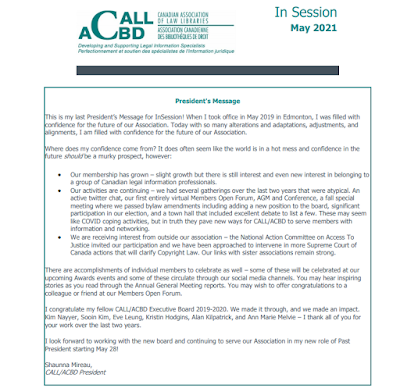Canadian Forum on Civil Justice Spring 2021 Newsletter
The non-profit Canadian Forum on Access to Justice (CFCJ) publishes a regular newsletter on access to justice issues.
The latest issue includes news about:
- the Measuring the Impact of Legal Service Interventions project: "In the second phase of this project, the CFCJ research team will work with community legal clinics in Ontario to gather research insights on the impacts of legal assistance on experiences resolving civil justice problems, and on longer-term consequences."
- a new paper on The Needs of Helping Organizations in the Community: "By partnering with community-based organizations, legal service providers can extend their reach to better address the diverse needs of people experiencing legal problems. To the extent that residents of a given catchment area may be more inclined to seek information or assistance from community-based organizations, these services are well-positioned to connect with legal services to offer additional support. "
- a project on Multi-Disciplinary Models for Legal Problem Resolution: "The goal of this research is to examine existing services and programs that enlist legal and non-legal resources to address everyday legal problems and related problems. "
- a recent presentation on A People-Centred Approach to Data and Evidence-Based Policymaking
- and more
Labels: access to justice



